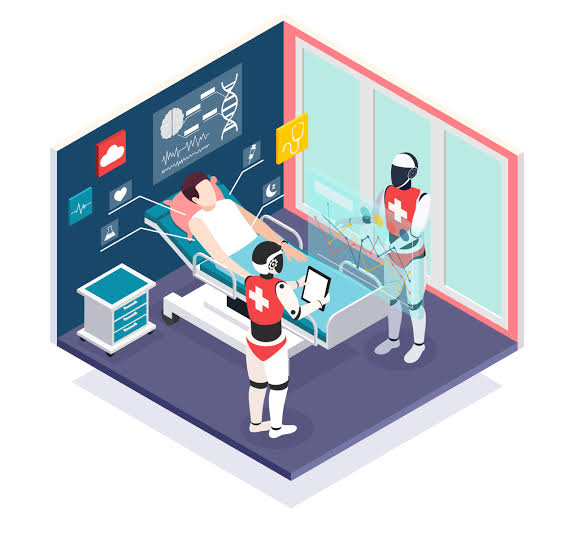Artificial Intelligence has become a critical tool in modern healthcare. From automating administrative tasks to diagnosing complex conditions, AI systems are now embedded across hospitals, clinics, and research institutions.
In 2025, machine learning models help detect diseases like cancer and diabetes earlier than ever before. AI is also used to predict patient outcomes, manage hospital resources, and provide decision support to medical professionals.
However, while these technologies offer remarkable benefits, they also introduce ethical dilemmas. As algorithms play a larger role in diagnosis and treatment, there is growing concern over fairness, accountability, and the human impact of these automated decisions.
Bias in AI Models and Its Impact
One of the most pressing ethical issues in AI healthcare is algorithmic bias. AI systems learn from historical data, and if that data contains biases—due to socioeconomic disparities, racial inequalities, or geographic limitations—those biases can be replicated or even amplified by the system.
For instance, an AI model trained on data from predominantly Western populations may perform poorly when used in African or Asian contexts. This could lead to misdiagnoses, delayed treatment, or denial of necessary care for certain demographic groups.
As of July 2025, global health institutions are urging developers to diversify their datasets and conduct equity audits. However, correcting for bias remains a complex challenge that requires input from ethicists, clinicians, and communities alike.
Transparency and Explainability of AI Decisions
Another ethical concern is the lack of transparency in AI decision-making. Many healthcare algorithms, especially those built with deep learning, operate as “black boxes,” offering accurate results without explaining how they arrived at a decision.
In critical medical scenarios, such as cancer diagnosis or surgical planning, clinicians need to understand the rationale behind a system’s recommendation. Without transparency, it becomes difficult to validate, challenge, or trust AI-driven conclusions.
In 2025, the demand for explainable AI (XAI) in healthcare has grown significantly. Developers are being pushed to create models that provide clear, interpretable explanations for their outputs so that healthcare professionals can make informed judgments alongside technology.
Informed Consent and Patient Autonomy
AI integration raises new questions about informed consent. Traditionally, patients consent to treatment plans recommended by human doctors. But when AI tools are involved in decision-making, should patients be informed of the algorithm’s role?
Ethical practice requires that patients understand how their data is being used, whether AI has influenced their diagnosis or treatment, and what the potential risks and limitations are.
Healthcare systems in 2025 are beginning to develop updated consent protocols that include information about AI usage. Still, many argue that consent alone is not enough—patients should also have the right to opt out of AI-driven decisions if they prefer a human-centered approach.
Accountability When Mistakes Happen
When an AI system makes a mistake—such as misclassifying a tumor or recommending the wrong dosage—who is held accountable? Is it the software company, the hospital that deployed the tool, or the physician who relied on the system?
This issue becomes even murkier when AI decisions are fully automated, leaving little room for human oversight. The lack of legal clarity around responsibility poses a major ethical and legal challenge for the healthcare industry.
As of July 2025, regulatory bodies in Canada, the EU, and the United States are developing legal frameworks to assign responsibility and create standards for AI validation. However, consistent global guidelines are still a work in progress.
Balancing Efficiency With Empathy
AI can streamline workflows and improve efficiency, but it lacks emotional intelligence. Medical care is not only about solving biological problems—it’s also about empathy, communication, and human connection.
Patients may feel uncomfortable or dehumanized when decisions about their health are made entirely by machines. Particularly in sensitive areas like mental health or end-of-life care, ethical healthcare must consider the emotional well-being of the patient.
High-tech solutions should not come at the cost of bedside manner. In 2025, many experts advocate for “human-in-the-loop” systems where AI supports—but does not replace—clinicians in critical decisions.
Data Privacy and Ethical Use of Health Information
AI systems rely heavily on data to function effectively. This includes medical records, genetic information, wearable device metrics, and more. While this data enables powerful insights, it also raises concerns about privacy, security, and consent.
Patients have the right to know how their information is being used, whether it’s stored securely, and whether it will be shared with third parties. Ethical AI development demands robust safeguards to protect sensitive health data.
New legislation in 2025, such as Canada’s Digital Privacy Act and the EU’s AI Act, has introduced stricter rules on data usage and transparency. Companies that handle health data are now required to demonstrate responsible data practices and ethical AI design.
Global Disparities in AI Access
AI has the potential to improve healthcare outcomes globally, but not all regions have equal access to the technology. In low-income countries, limited infrastructure and insufficient data can make it difficult to deploy or train AI systems effectively.
This creates a digital divide in healthcare, where wealthy nations benefit from AI-driven innovations while others are left behind. Ethical deployment of AI requires a commitment to global inclusivity and investment in cross-border health equity.
Initiatives in 2025 by organizations like the World Health Organization and the Global Partnership on AI aim to make AI tools more accessible and relevant to underserved populations.
The Need for Ethical Oversight Committees
To address these growing concerns, many hospitals and research centers now have dedicated ethical oversight committees. These groups review AI tools before deployment, monitor their impact, and ensure that ethical principles guide innovation.
These committees often include ethicists, medical professionals, technologists, and patient advocates. Their role is not just to prevent harm but also to ensure that AI is aligned with core healthcare values: compassion, equity, trust, and safety.
As AI becomes more embedded in healthcare systems, the need for continuous ethical review will become not just desirable but necessary.
Conclusion: Building Trust Through Responsible AI Use
AI has the power to revolutionize healthcare, offering faster diagnoses, personalized treatments, and improved resource management. But with that power comes great ethical responsibility.
Trust in AI systems must be earned through transparency, fairness, and accountability. Healthcare providers must prioritize not only technological performance but also the rights and dignity of the people they serve.
As of July 2025, the conversation around AI ethics in healthcare is more urgent than ever. It is not just about building smarter machines—but about building a healthcare future that is humane, inclusive, and just.



